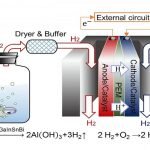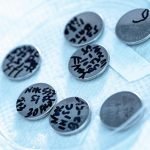Small electrical charges could help airplanes avoid lightning strikes
There may be a way to make airplanes less prone to lightning strikes, according to new research exploring the role of the aircraft in...
Special solar panels could work when the sun goes down
A special kind of solar cell could work at night, researchers say.
In fact, the specially designed photovoltaic cell could generate up to 50 watts...
New wearable health device could harvest heat energy from human body
North Carolina State University engineers have demonstrated a flexible device that harvests the heat energy from the human body to monitor health.
The device surpasses...
New special solar cells could generate power at night
What if solar cells worked at night?
That's no joke, according to Jeremy Munday, professor in the Department of Electrical and Computer Engineering at UC...
Scientists find new way to produce instant hydrogen
Since the Industrial Revolution, the environmental impacts of energy have posed a concern.
Recently, this has driven researchers to search for viable options for clean...
A new stretchable battery can power wearable electronics
Electronics are showing up everywhere: on our laps, in pockets and purses and, increasingly, snuggled up against our skin or sewed into our clothing.
But...
For cheaper solar cells, thinner really is better
Costs of solar panels have plummeted over the last several years, leading to rates of solar installations far greater than most analysts had expected.
But...
This new finding could make solar energy more efficient
Chemists have figured out, for the first time, how to collect energy from the entire visible spectrum of sunlight and transform it, quickly and...
Nuclear waste could be recycled for diamond battery power
Scientists from the University of Bristol hope to recycle radioactive material directly from a former nuclear power plant in Gloucestershire to generate ultra-long-lasting power...
Less may be more in next-gen lithium-ion batteries
Rice engineers built full lithium-ion batteries with silicon anodes and an alumina layer to protect cathodes from degrading.
By limiting their energy density, the...











